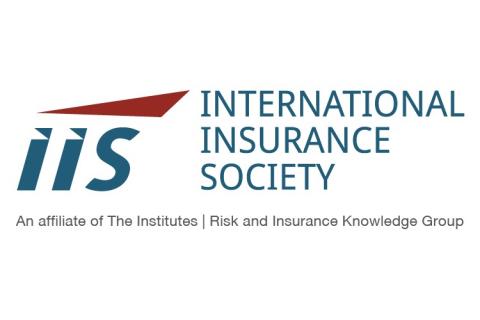Global Concerns Survey: Political & Legal Concerns

Michael Morrissey, Special Advisor, International Insurance Society, Inc.
We are pleased to present our fourth report on the joint IIS and Institutes Global Concerns Survey of senior insurance executives and other industry thought leaders around the world. We developed this survey to get answers to the question “What keeps you awake at night?” to the industry’s most influential people. Their fascinating responses, some predictable but many surprising, are being shared with our members in this series of articles, and we will resume presenting the responses at the Global Insurance Forum when we reconvene in 2021.
This month we focus on “Political & Legal Concerns” comments from our survey. Like the other four topical areas of our survey, Political & Legal (P&L) responses were offered before the COVID-19 pandemic turned the world upside down. We will only know when the next survey is conducted just how different insurers’ concerns are in the new environment.
This year, survey respondents ranked “Regulation” as their number one area of concern in the Political & Legal realm. At the time of the original survey, this concern prioritized the regulation of solvency and capital adequacy, policy form and rate approvals, and consumer protection practices. The regulation of technology innovation, more appropriate capital charges for different investment asset classes and the like were also insurers’ top of mind issues.
Now the focus of concern has shifted as a result of the pandemic. The dominant regulatory concern now is how regulators should respond to COVID-19. At the top of this new list of worries is how regulators will respond to cries for insurers to pay for pandemic losses not covered in most existing policies. Forcing insurers to cover Business Interruption losses not anticipated or priced into commercial property & casualty policies could bankrupt the industry. This dispute of existential importance may take years to resolve, involving both tort reform and social inflation elements, and is already causing reputation risk for the industry.
Additional regulatory issues involve pressure for insurers to return premium payments to policyholders who are driving fewer miles or have lower company payrolls than expected. If Regulation raked highest in the Political & Legal sector before COVID-19, it is clearly an even greater worry now.
“Political Instability” ranked second among P&L concerns. Of course this was more of a concern among emerging and less developed country respondents, and only a minor issue for developed market respondents. Nonetheless, while those insurance executives sitting comfortably in their offices in London, Zurich or New York may not worry about political stability in their domiciliary countries, events in Africa, Latin America, the Middle East and Asia, where a significant portion of the industry’s future growth must come from, should be alert to disruption.
Third on the survey respondents’ ranking of P&L concerns was “New Sources of Liability”. While the executives polled may have been pondering what the next asbestos or cyber risk category to emerge might be, recent events have surely reordered their priorities. Whether or not pandemics are insurable risks is on the mind of all insurance leaders since the outbreak of COVID-19. Everyone from scientists and medical experts to Bill Gates have been saying for years that the world was overdue for a pandemic, but from the vantage point of July, 2020 preparation has obviously been lacking. Schemes are being developed right now to mitigate the human and economic loss from future pandemics, both within the insurance industry (like Pan Re in the UK)and in the form of public private partnerships (like the PRIA proposal in the US). Whether or not pandemic risk is specifically excluded in any current insurance contract, this is an issue with which the industry will have to find a way to deal.
“Protectionism” was the fourth ranking concern for our survey respondents. This is another issue more of concern to emerging and less developed markets’ executives, who have seen again and again over the years protectionist actions by governments disrupt the free market of the insurance industry. We have observed this recently in two of the most promising insurance growth markets, India and Brazil, and see evidence of it in Nigeria as well. This s a legitimate concern not only for regional insurers in those markets, but for international companies aspiring to do business there. Farther down the ranking of P&L concerns was “Threat of Nationalization”, which for the purposes of this article will be included in “Protectionism”.
Ranking fifth in our survey was “Taxation”, a perennial concern among insurance executives. Since the Tax Reconciliation Act of 2017, designed to lower corporate tax rates overall, included provisions that raised several categories of taxation for both life and nonlife insurers, this has been an ongoing concern and subject for advocacy and negotiation. “Terrorism” ranked sixth on the ranking of concerns this year. This is an issue that most executives regard as not terribly urgent, until it is.
As a regulated industry, and regulated very differently in different markets, Political & Legal concerns will always loom large in the minds of insurance leaders. Regulation, for instance, ranked third among all concerns addressed by the survey, which included five broad areas: Economic, Operational, Technology, Political & Legal and Social & Environmental. In the entire survey, across all categories, only Innovation and Cyber Security were of greater concern than Regulation. We have no reason to think that level of concern will lessen in future years.
7.2020

